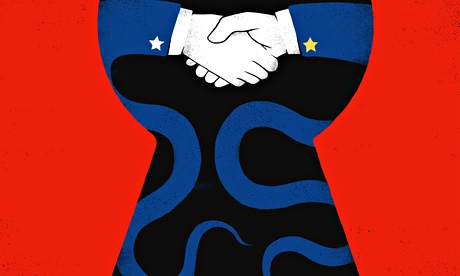Persistent unease about the legitimacy of military action in Iraq and Afghanistan has left a toxic political legacy

Few would deny that for all the wanton slaughter of the first world war, the conflict acted as a catalyst for profound change. The experience of war on such a scale had an immense and lasting impact on social relations and political ideas. Britain was shielded from the worst of the consequences that affected the continent, not least because victory provided a justification in itself for war, and because British values appeared to have been vindicated.
For over a decade now, Britain has been apparently engaged in another “war for civilisation”. Though different in character and intensity, this engagement is at the same time more protracted, less tangible in its aims, and perhaps more important in its consequences. While the British withdrawal from Afghanistan last month closed a chapter, it did not provide a conclusion. If the British like their wars short and sharp, with a clear cause and a victory they can celebrate, then Iraq, Afghanistan, and its associated interventions, along with the seemingly open-ended commitments they represent, have been a major source of disaffection.
As the interminable course of the Chilcott inquiry suggests, there are a great many outstanding questions on the motivations, means and methods that launched Britain on this most dangerous of political trajectories.
Some years ago, at a meeting in the House of Commons, I suggested that the war in Iraq, and particularly its opaque causes, was leading to a dangerous loss of moral authority abroad that could rebound on domestic politics. A senior Labour MP responded with a confidence that surprised me: Britons don’t vote on issues of foreign policy,she said, and the war in Iraq would have no significant effect. The return of a Labour majority in 2005 no doubt bolstered that view.
Yet the remark also seemed profoundly out of touch with the undercurrent of unease that was building most clearly among the professionals who provide the intellectual and administrative backbone of the British state and wider society. What was most striking about this malaise was that it was affecting people who had hitherto enjoyed a positive relationship with the idea of Britain. This was not some containable peripheral group susceptible to radicalisation; it was something more fundamental to the body politic, something more subtle. Many had put their faith in New Labour and everything Tony Blair’s “cool Britannia” represented. Iraq, emblematic of the broader global war on terror, tested that faith to breaking point. Many have come, slowly but surely, to feel a sense of betrayal.
I invite anyone who finds it difficult to believe that this tear in the moral fabric of the British state has had no repercussions on domestic politics to take a look at developments in Scotland. Far from being marginal to the political process, as some in Westminster like to believe, it might be better to see events in Scotland as a harbinger of things to come should complacency persist and political stupidity take hold.
Among the politicians to seize on the sense of unease was Alex Salmond. While some cautioned against the folly of the war, Salmond – then an MP at Westminster – went for the jugular and attacked Blair directly in a manner calculated to draw the attention of those veering towards disaffection. As the war dragged on and victory seemed ever more remote, Salmond’s attempt to impeach Blair seemed increasingly to strike a chord with the public. Indeed his criticisms have felt only more appropriate with the passage of time as the perception grows that a war intended to make us safe from terrorism has encouraged homegrown radicalisation while the man seen as culpable spends more time making money than making peace.
Salmond’s attacks were matched by an incompetence on the part of New Labour that was breathtaking in its short-sightedness. The Scots are rightly proud of their contributions to the British army, and the army has traditionally recruited well in Scotland, which boasts some of the most famous regiments, including the Black Watch. But they expect some respect in return.
To paraphrase Barack Obama, people aren’t necessarily against wars – just dumb wars; they don’t expect their sons to be sent to fight on a false prospectus. The decision of the then defence secretary, Geoff Hoon, to announce the effective abolition of the Black Watch while the unit on active combat in Iraq went down like a lead balloon. The “military covenant”, now enshrined in law, was found to be sadly wanting. The mood in Scotland was in some ways mirrored by scenes in Wooton Bassett. As affection for the soldiers served and respect for the armed forces have risen, so has contempt for the political leadership behind Britain’s continuing wars. By 2007 the SNP had made big gains, not least in areas traditionally associated with key regiments, allowing the party for the first time to replace Labour as the governing party in Scotland. Salmond was returned as first minister, and relentlessly condemned “illegal wars” in which, he assured his public, an independent Scotland would not have become embroiled. It became a central tenet of the independence campaign that was to follow the SNP landslide at the expense of Labour in 2011.
It was not so much that Britain was broken; it was that its embrace of ill-defined military interventions showed it was morally bankrupt and beyond repair. This view was surprisingly common among professionals, and the SNP courted them with a discipline, some might argue, cynicism that would have made New Labour proud. There is irony in the fact that the SNP is on the brink of disestablishing Labour from its Scottish power base by applying methods, tactics and slogans learned from a Labour electoral machine at its strategic best.
Yet appreciation of the strategic lie of the land is woefully missing from the current political class in Westminster. If the SNP’s rise is anything to go by, then foreign policy and war have consequences that, while not immediate, are all the more profound for it. Among the many inventions credited to the Scots, perhaps the greatest was the idea of Great Britain as a political construct. The September 2014 referendum has shown that among its progenitors there is life yet in the idea.
But the result should never have been as close as it was, and there is no doubt that the idea of Britain was under serious attack – not from without but from within: not only from critics but from pro-union politicians unable effectively to articulate a sense of what Britain means. Britain’s modern wars are by no means the only cause of our difficulties, but their mishandling has arguably tipped the balance from self-criticism to self-loathing. This country still lacks closure. We need to talk about the war.







